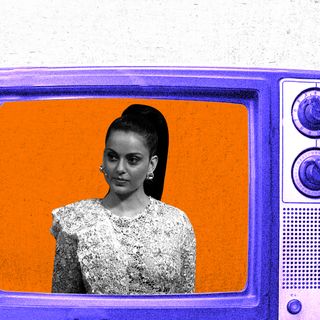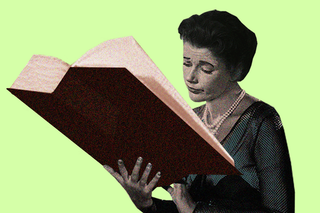
Is This Normal? “I Can’t Quit a Book Even After I’ve Lost Interest in It”
We struggle to quit things we’ve already invested time, energy, and money into even if the present cost of sustaining it outweighs the benefits we derive from it.

In this series, we dig into our strange phobias, fixations, and neuroses, and ask ourselves — Is This Normal?
Here’s an unpopular opinion: I continued reading The Lord of the Rings long after I should’ve given up on it. I love the plot, I’ve rewatched the movies like a million times over the years, but I found the details in the book way too elaborate to hold the attention of my ADHD brain. Yet, I forced myself to continue till I just couldn’t. Similarly, I found it difficult to quit watching Arrested Development when I started to dislike it toward the later seasons — the same way I struggled with quitting How to Get Away with Murder and Suits.
Is this normal? Turns out: yes, pretty much.
For starters, I’m not alone in feeling this way. “I just happen to be stuck in a TV show,” one Reddit user wrote in 2018. “…two more seasons left to watch, and I have to say that right now I almost feel forced to keep going for the sake of finishing it,” they added.
What is it that makes it so difficult to give up on books and TV shows — which are, arguably, things one picks up to relax and enjoy — even after they’ve stopped doing precisely what they were meant to? Experts believe there are a host of reasons behind it.
To begin with, “I think that people are really looking for community and this is just another form of community. And they get wrapped up,” Kathryn Smerling, a psychotherapist, explains. “I think you become loyal to a certain narrative and narratives mean a lot to us… We live our lives through telling narratives and stories… They’re like old friends that you keep for a while and you can always go back to them.”
It’s almost like that friend we all have (or, you know, are) — who asks for our advice, but refuses to heed it and makes bad decisions anyway, only to come and vent to us afterward? As tiresome and annoying as we may find them, we continue to advise them as best as we can, and then, lend them our shoulders to cry on or our ears to vent into repeatedly — because we care. Similarly, books and TV shows we’re already attached to can be difficult to give up on — no matter how much we hate the trajectories they’re on — because, well, we care about the characters and their narratives.
“You begin to identify with [the characters], and identify with all of the problems that are going on, you develop empathy for certain characters, you don’t like other characters and you become invested in their story… it’s a narrative of other people’s lives, which also enables us not to think about our own problems,” Smerling adds.
Related on The Swaddle:
Is This Normal? “I Imagine Friendships With Fictional Characters”
Then, there’s also the “sunk cost fallacy” — it’s difficult to quit things we’ve already invested time, energy, and money into even if the present cost of sustaining it outweighs the benefits we are deriving from it. One of the most straightforward demonstrations of this is when you over-eat — perhaps, to the point of getting more and more nauseous with every subsequent bite — simply because you got ready, traveled to a restaurant, and paid for an all-you-can-eat buffet. When we begin reading a book or start watching a new TV show, we’re investing our time, energy, and emotions — if not money — into getting to know the characters and developing an interest in their lives. By the time the narrative ceases to hold our interest any longer, we’re often knee-deep in investment.
According to a 1985 study, one of the psychological bases for the sunk cost fallacy is “the desire not to appear wasteful.” In fact, a 2010 study found that our cultural aversion to “wasting” is so strong that sometimes — as in the case of books and TV shows we’ve begun disliking — we paradoxically end up wasting more time, energy, and money instead of cutting our losses and moving on since we’re scared of feeling wasteful.
This is further compounded by the messaging about quitting being a “bad thing.” One Google search on how children are taught never to quit will throw up a multitude of articles on teaching kids to “never give up.” Granted, as adults too, we’re surrounded by similar messaging, but early childhood experiences can be formative, and have a lasting impact — making us feel obligated to keep going even when something ceases to be enjoyable, or pleasant even.
As a person diagnosed with ADHD as an adult, I can see how the social conditioning around quitting impacts my ability to “give up.” Like many other ADHD individuals, not only am I prone to lose interest in things quickly, but also quit them on impulse. As a result, my undiagnosed self was always termed “flaky” and a “quitter.” Unfortunately, this trapped me in a cycle, where I would constantly try to prove I’m neither of these things — primarily due to the negative connotations they carry — and force myself to continue with things even after they became painfully boring for my ADHD brain.
So the next time you find yourself stuck between a rock and a hard place — the rock being a story you no longer want to stay with, and the hard place being the perceived inability to let it go — rest assured that it is, indeed, normal and infuriatingly human.
Devrupa Rakshit is an Associate Editor at The Swaddle. She is a lawyer by education, a poet by accident, a painter by shaukh, and autistic by birth. You can find her on Instagram @devruparakshit.
Related


It’s Okay: To Not Know What You Want
